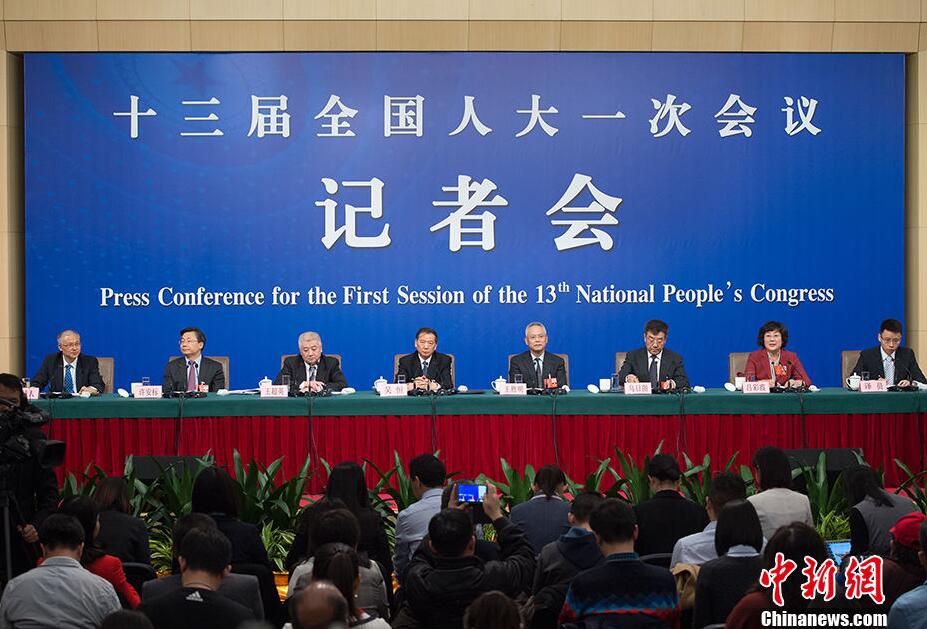
The five functional modules of the operating system are processor management, memory management, device management, file management and operation management. Processor management The most basic function of processor management is to process interrupt events. After configuring the operating system, various events can be processed.
The functions of the computer operating system include: processor management, memory management, device management, file management, job management and other functional modules. Processor management. The most basic function of processor management is to handle interrupt events. The processor can only detect interrupt events and generate interrupts and cannot process them.
Storage management is divided into several functions: storage allocation, storage sharing, storage protection, and storage expansion.Equipment management has the following functions: equipment allocation, equipment transmission control, and equipment independence. File management: file storage space management, directory management, file operation management, file protection.
The operating system should usually include the following five functional modules: (1) Processor management. When multiple programs are running at the same time, solve the problem of processor (cpu) time allocation. ( 2) Operation management. The program to complete an independent task and its required data constitute a task.
The function of the operating system is mainly reflected in the management of computer resources - microprocessors, memory, external devices, files and tasks. The operating system sets this management function into the corresponding program management module, and each management module is responsible for a certain function.That is, the five functions of the operating system.
The operating system has five functions: processor management: mainly controls and manages the work of the CPU. Storage management: mainly carry out memory allocation and management device management: mainly manage basic input and output device file management: responsible for the organization, storage, operation and protection of computer files, etc.

There are the following types of management systems: the management system of the finished product set. This kind of system is a stereotyped management system, which makes a small number of functional adjustments to the software through the parameter settings of the software.
Transaction Processing System (TPS): Operators and supervisors are used to input transactions, events, sort, list, merge updates, output detailed reports, lists and summaries, etc. Management Information System (MIS): Middle managers are used to input general transaction data and simple models to process routine reports.
Adgecal management system Academic management system is one of the most core management systems of the school, which is responsible for arranging and managing the school's teaching activities. It includes curriculum setting, teaching plan, teacher arrangement, examination management and other contents.
VMware vSphere: It is a virtualization management platform that can be used to manage virtual machines, storage and networks, etc. Nagios: It is an open source network monitoring system that can be used to monitor network devices, servers and applications, etc.
Financial subsystem: providing the function of financial management information; Decision support subsystem: make the logistics information system reach a higher level.
ERP management system brand Youyou, Jindie International Software, Wave Software, Dingjie Software, Zhenghang Software. Use friends.
1. System management refers to the information technology system that manages enterprises, and file management is one of the five major functions of the operating system.First, network management refers to the centralized management of resources on the network by network administrators through network management programs.
2. System Management regards organizational components as interrelated and interdependent systems, so it advocates applying the system concept to the management concept.
3. System management refers to the process of maintaining, managing and monitoring computer systems. As an important part of enterprise informatization construction, the importance of computer system management cannot be ignored.
UEFA TV-APP, download it now, new users will receive a novice gift pack.
The five functional modules of the operating system are processor management, memory management, device management, file management and operation management. Processor management The most basic function of processor management is to process interrupt events. After configuring the operating system, various events can be processed.
The functions of the computer operating system include: processor management, memory management, device management, file management, job management and other functional modules. Processor management. The most basic function of processor management is to handle interrupt events. The processor can only detect interrupt events and generate interrupts and cannot process them.
Storage management is divided into several functions: storage allocation, storage sharing, storage protection, and storage expansion.Equipment management has the following functions: equipment allocation, equipment transmission control, and equipment independence. File management: file storage space management, directory management, file operation management, file protection.
The operating system should usually include the following five functional modules: (1) Processor management. When multiple programs are running at the same time, solve the problem of processor (cpu) time allocation. ( 2) Operation management. The program to complete an independent task and its required data constitute a task.
The function of the operating system is mainly reflected in the management of computer resources - microprocessors, memory, external devices, files and tasks. The operating system sets this management function into the corresponding program management module, and each management module is responsible for a certain function.That is, the five functions of the operating system.
The operating system has five functions: processor management: mainly controls and manages the work of the CPU. Storage management: mainly carry out memory allocation and management device management: mainly manage basic input and output device file management: responsible for the organization, storage, operation and protection of computer files, etc.

There are the following types of management systems: the management system of the finished product set. This kind of system is a stereotyped management system, which makes a small number of functional adjustments to the software through the parameter settings of the software.
Transaction Processing System (TPS): Operators and supervisors are used to input transactions, events, sort, list, merge updates, output detailed reports, lists and summaries, etc. Management Information System (MIS): Middle managers are used to input general transaction data and simple models to process routine reports.
Adgecal management system Academic management system is one of the most core management systems of the school, which is responsible for arranging and managing the school's teaching activities. It includes curriculum setting, teaching plan, teacher arrangement, examination management and other contents.
VMware vSphere: It is a virtualization management platform that can be used to manage virtual machines, storage and networks, etc. Nagios: It is an open source network monitoring system that can be used to monitor network devices, servers and applications, etc.
Financial subsystem: providing the function of financial management information; Decision support subsystem: make the logistics information system reach a higher level.
ERP management system brand Youyou, Jindie International Software, Wave Software, Dingjie Software, Zhenghang Software. Use friends.
1. System management refers to the information technology system that manages enterprises, and file management is one of the five major functions of the operating system.First, network management refers to the centralized management of resources on the network by network administrators through network management programs.
2. System Management regards organizational components as interrelated and interdependent systems, so it advocates applying the system concept to the management concept.
3. System management refers to the process of maintaining, managing and monitoring computer systems. As an important part of enterprise informatization construction, the importance of computer system management cannot be ignored.
UEFA Champions League standings
author: 2025-01-08 05:05bingo plus update today Philippines
author: 2025-01-08 04:59Hearthstone arena deck Builder
author: 2025-01-08 03:48100 free bonus casino no deposit GCash
author: 2025-01-08 03:38 Hearthstone deck
Hearthstone deck
911.39MB
Check Casino Plus free 100
Casino Plus free 100
897.66MB
Check UEFA live free
UEFA live free
928.81MB
Check Hearthstone arena deck Builder
Hearthstone arena deck Builder
782.75MB
Check UEFA EURO
UEFA EURO
258.72MB
Check Casino redeem
Casino redeem
638.55MB
Check casino plus free 100
casino plus free 100
417.83MB
Check UEFA Champions League
UEFA Champions League
184.21MB
Check Arena Plus login
Arena Plus login
661.13MB
Check UEFA EURO
UEFA EURO
914.19MB
Check DigiPlus
DigiPlus
112.86MB
Check DigiPlus stock
DigiPlus stock
182.94MB
Check Free sports events uefa champions league app android
Free sports events uefa champions league app android
626.55MB
Check Bingo Plus
Bingo Plus
753.48MB
Check Casino Plus
Casino Plus
231.67MB
Check Casino Plus free 100
Casino Plus free 100
393.51MB
Check Free sports events uefa champions league app android
Free sports events uefa champions league app android
358.72MB
Check Hearthstone Arena class tier list 2024
Hearthstone Arena class tier list 2024
848.55MB
Check European Cup live
European Cup live
134.52MB
Check Bingo Plus stock
Bingo Plus stock
742.78MB
Check European Cup live
European Cup live
471.61MB
Check Casino Plus free 100
Casino Plus free 100
591.93MB
Check Walletinvestor digi plus
Walletinvestor digi plus
559.47MB
Check TNT Sports
TNT Sports
219.96MB
Check UEFA TV
UEFA TV
277.34MB
Check DigiPlus fair value
DigiPlus fair value
166.78MB
Check UEFA TV
UEFA TV
896.39MB
Check Champions League
Champions League
429.69MB
Check UEFA Champions League live
UEFA Champions League live
312.43MB
Check UEFA Champions League standings
UEFA Champions League standings
537.65MB
Check UEFA Champions League live streaming free
UEFA Champions League live streaming free
787.31MB
Check Casino Plus GCash login
Casino Plus GCash login
713.86MB
Check Casino Plus free 100
Casino Plus free 100
319.25MB
Check Europa League app
Europa League app
477.91MB
Check Hearthstone arena deck Builder
Hearthstone arena deck Builder
567.52MB
Check PAGCOR online casino free 100
PAGCOR online casino free 100
996.73MB
Check
Scan to install
UEFA TV to discover more
Netizen comments More
2508 量体裁衣网
2025-01-08 04:56 recommend
2160 出尔反尔网
2025-01-08 04:24 recommend
318 柳眉倒竖网
2025-01-08 03:35 recommend
2391 营营苟苟网
2025-01-08 03:30 recommend
189 鼎镬如饴网
2025-01-08 03:26 recommend